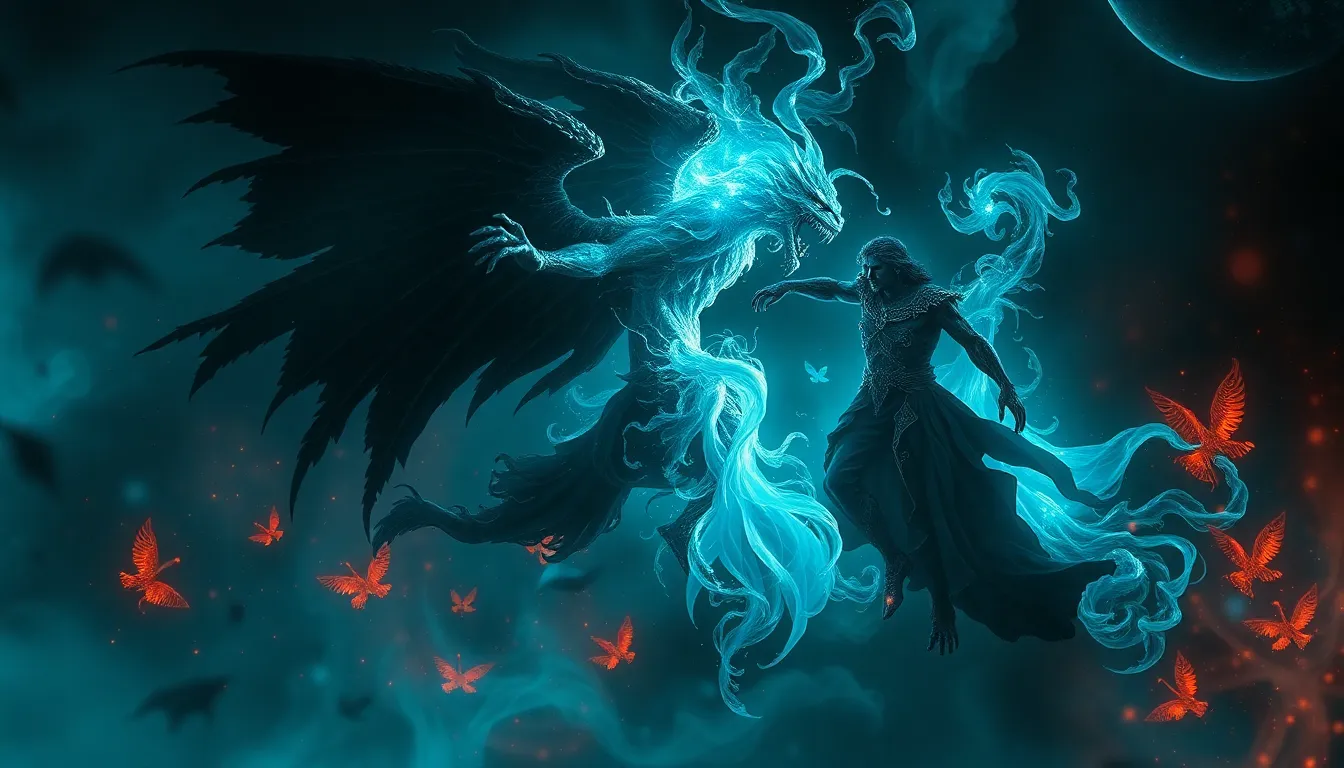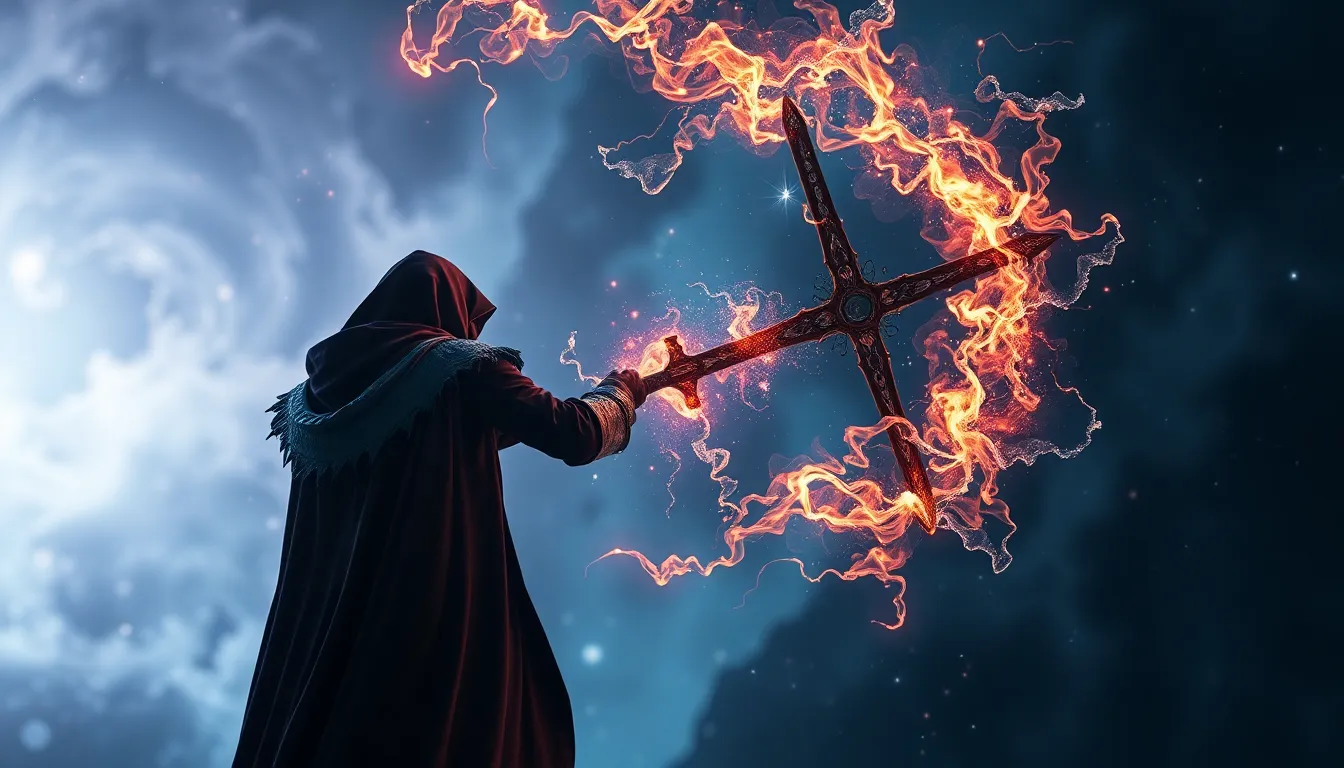From Tragedy to Triumph: Transformative Tales in Mythology
I. Introduction
Mythology serves as a profound reflection of human experiences, encapsulating the complexities of life through narratives that often blend the divine with the mortal. Within these tales, themes of transformation from tragedy to triumph emerge as powerful motifs that resonate across cultures and eras. This article explores how mythological tales illustrate resilience and growth through adversity, revealing the transformative power inherent in human experiences.
II. Understanding Tragedy in Mythology
Tragedy in mythology refers to narratives that depict significant suffering, loss, and the downfall of characters, often leading to profound revelations or transformations. Common elements of tragic tales include:
- Loss: Characters frequently face the death of loved ones or the loss of their own potential.
- Suffering: Emotional and physical pain is a central theme, showcasing the struggle against fate.
- Downfall: Many heroes experience a fall from grace, often due to hubris or unavoidable circumstances.
These tragic elements serve as catalysts for transformation, prompting characters to evolve, adapt, or find redemption in the aftermath of their suffering.
III. Prominent Myths Featuring Tragic Heroes
Throughout mythology, several stories highlight tragic heroes who undergo significant transformations:
A. The Story of Prometheus: Gift and Punishment
Prometheus, the Titan who stole fire from the gods to give to humanity, embodies the conflict between divine authority and human aspiration. His tragic punishment—eternal torment by having his liver eaten daily by an eagle—serves as a poignant reminder of the consequences of defiance. Yet, through his suffering, Prometheus symbolizes hope and the enduring human spirit.
B. Orpheus and Eurydice: Love, Loss, and the Quest for Redemption
The tale of Orpheus, who descends into the Underworld to retrieve his beloved Eurydice, showcases the intersection of love and tragedy. His failure to bring her back to the living world teaches profound lessons about loss, the fragility of joy, and the power of music as a transformative force.
C. The Tale of Achilles: Glory Achieved Through Personal Loss
Achilles, the greatest warrior of Greek mythology, experiences tragedy through the loss of his friend Patroclus. This event catalyzes Achilles’ transformation from a proud warrior to a figure embodying the complexities of grief and vengeance, ultimately leading to his own tragic fate.
IV. The Role of Gods and Fate in Transformative Stories
In many mythological narratives, the influence of divine beings plays a significant role in shaping mortal experiences:
A. The Influence of Divine Beings in Mortal Tragedies
Gods often intervene in human affairs, sometimes leading to tragedy. For instance, the jealousy of Hera leads to numerous trials for Heracles, highlighting the complexities of divine influence.
B. Fate vs. Free Will: How Choices Lead to Transformation
Many myths explore the tension between fate and free will. Characters are often faced with choices that lead to their ultimate transformation, illustrating that even in the face of destiny, personal agency remains crucial.
C. Examples from Greek and Norse Mythology
In Greek mythology, the story of Oedipus exemplifies the struggle against fate, while in Norse mythology, the tale of Ragnarok showcases the inevitability of destiny and the potential for rebirth and renewal.
V. From Despair to Empowerment: Case Studies
Several mythological figures exemplify the journey from despair to empowerment:
A. Psyche and Eros: Overcoming Trials for Love
Psyche’s transformation from a mortal woman to a goddess illustrates the power of love and perseverance. Despite facing numerous trials, her journey emphasizes the rewards of resilience.
B. Hercules: Redemption Through Labor and Challenges
Hercules’ Twelve Labors serve as a metaphor for overcoming personal demons and societal expectations, highlighting the transformative power of hard work and determination.
C. The Metamorphosis of Daphne: Transformation as Survival
Daphne’s transformation into a laurel tree to escape Apollo illustrates the theme of survival through metamorphosis, signifying the lengths individuals will go to protect themselves from harm.
VI. Cultural Variations on the Theme of Transformation
Mythological narratives vary across cultures, yet the theme of transformation remains prevalent:
A. Comparison of Eastern vs. Western Mythological Narratives
Eastern myths often emphasize harmony and balance, while Western myths frequently highlight individual struggle and heroism. Both traditions, however, explore the transformative potential of adversity.
B. Indigenous Myths Emphasizing Resilience and Adaptation
Indigenous myths frequently focus on the interconnectedness of life and the resilience of nature, showcasing how transformation is an essential aspect of survival and adaptation.
C. Modern Interpretations of Ancient Stories in Contemporary Culture
Contemporary adaptations of mythological tales reveal enduring themes of transformation, often reflecting modern societal challenges and personal growth journeys.
VII. The Psychological Implications of Tragic Transformations
Mythological tragedies resonate deeply within the human psyche:
A. Archetypes of Tragedy in Human Psychology
Characters such as the Hero, the Martyr, and the Redeemer serve as archetypes reflecting our struggles and aspirations, providing frameworks for understanding personal experiences.
B. The Concept of Catharsis and Its Relation to Myth
Catharsis, the emotional release experienced through storytelling, allows individuals to confront their own tragedies through the lens of myth, leading to healing and transformation.
C. How Myths Provide Frameworks for Coping with Real-Life Tragedies
Myths offer narratives that help individuals process their grief, loss, and challenges, providing a sense of meaning and connection to the larger human experience.
VIII. Lessons Learned: Moral and Ethical Takeaways
Mythological tales impart valuable lessons on resilience and hope:
A. The Importance of Resilience and Hope
These stories encourage individuals to persevere in the face of adversity, reinforcing the belief that transformation is possible even in the darkest times.
B. How These Myths Resonate with Contemporary Societal Issues
Mythology addresses themes such as injustice, loss, and redemption, making them relevant to contemporary societal struggles and personal dilemmas.
C. Transformative Power of Storytelling in Personal Growth
Storytelling serves as a vehicle for personal growth, allowing individuals to connect with their own experiences through the transformative narratives found in mythology.
IX. Modern Adaptations and Reinterpretations of Myth
Mythological tragedies continue to inspire modern literature, film, and art:
A. Literature, Film, and Art Inspired by Mythological Tragedies
Contemporary works often reinterpret ancient tales, exploring the same themes of love, loss, and transformation in new contexts.
B. The Relevance of These Myths in Today’s World
Modern society grapples with issues such as identity, belonging, and resilience, making the lessons of mythology increasingly pertinent.
C. Examples of Modern Heroes Inspired by Mythological Figures
Contemporary heroes, whether in fiction or real life, often draw upon the archetypes established in myth, embodying the same struggles and triumphs.
X. Conclusion
In summary, the transformative power of mythology offers profound insights into the human experience, illustrating how tragedy can lead to triumph. Through the exploration of mythological narratives, we uncover timeless lessons about resilience, love, and the potential for growth amidst adversity. These tales continue to resonate, reminding us that even in our darkest moments, transformation is always possible.



